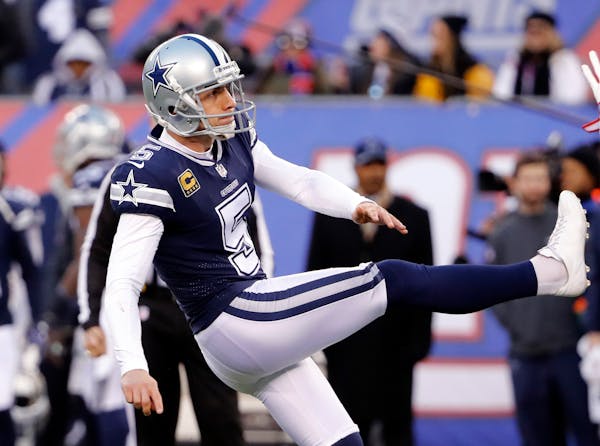Not that professional football needs another customer complaint, but …
No more ties!
After two weeks, the NFL already has two ties in the same season for only the fourth time since overtime was introduced in 1974. That leaves 15 more Sundays to reach a third deadlock for the first time since there were seven in 1973.
And, per usual for the NFL these days, no one is happy, and everyone wants change.
"It's almost like, 'Man, what did I sacrifice all that for?'" Vikings receiver Adam Thielen said the day after Monday's 29-29 tie at Green Bay. "That's the hardest part. At least when you lose, you lose. I don't know how I feel. Am I happy? Am I sad? Am I mad? Angry? I don't know."
The NFL increased the chances of more ties when it shortened overtime from 15 minutes to 10 last year. People were alarmed, but stood down when the first season produced zero ties.
Boy, that's changed in a hurry with back-to-back weeks with ties.
Is it an anomaly? Like 2016 and 1997, when the only two ties for the season came in consecutive weeks?
That remains to be seen. But if there's a major jump in ties, the NFL will have another flaw to fix.
The decision last year to shorten overtime was trumpeted as a key piece in the NFL's newfound dedication to player safety. Some might find that ironic coming from the same league that doesn't have a problem with black-and-blue employees playing Thursday night games on three days rest.
"I would agree," Vikings safety Harrison Smith said. "It's double talk."
Smith said he'd like to go back to 15-minute overtimes. Or longer, if necessary.
"I would just like to play until there's a winner," he said. "I don't know if I'm in the majority or minority of players on that though."
Vikings coach Mike Zimmer isn't afraid to criticize the NFL for some of its player-safety rules. In this case, however, he pointed to Sunday's 80-degree weather and 71 percent humidity as examples of how five fewer minutes on the field can make a noticeable difference in player safety.
"As hot as it was, probably [it helps] because of the heat and the number of plays," he said. "They had the ball for 38 minutes and we had it for [32]. I would say [the fewer] plays you are out there, the less opportunity there is for guys to get hurt."
It took the league 54 seasons to introduce overtime. From 1920, when there was a record 17, to 1973, there were 256 ties. With a sudden-death format from 1974 to 2011, there were 17 ties.
From 2012 — when the rules were modified to give both teams a possession if the opening drive ended in a field goal —until 2016, there were five ties. And now there have been two ties in two weeks.
Smith was asked for his thoughts on whether the NFL should adopt the college format. Put the ball at the defense's 25-yard line, eliminating the worrisome risks on kickoffs. Each team gets a possession. The passion order flips with each period. Force teams to go for two after the third period. Keep playing until there's a winner.
"I don't love that format," he said. "It completely takes kickoff coverage and the return game out of the game. We were close to breaking one Sunday. The return game is part of football, so I like the NFL version better. Just keep playing."
Vikings defensive tackle Sheldon Richardson said he was confused when Sunday's game ended.
"Honestly, I thought we had more plays to play," he said. "I looked up and it was, 'Game over. Tie.' It's crazy."
Smith laughed when asked what his thoughts were walking off the field.
"Some of us were kind of joking after the game that both teams should decide if they want to keep playing or not," he said. "Just keep playing on our own. Like, 'Hey, we're not done yet.'"
Jordan Montgomery wins in debut, Diamondbacks get 22 hits in 17-1 win over Giants
Ingram, Valanciunas lift Zion-less Pelicans past Kings and into the playoffs
Justin Turner's homer, RBI single highlight Blue Jays' 5-1 win over the Padres
![Minnesota Twins pitcher Jhoan Duran (59) in the ninth inning Tuesday, August 15, 2023, Target Field in Minneapolis, Minn. ] CARLOS GONZALEZ • carlos](https://arc.stimg.co/startribunemedia/NWLT5CNXGTRZA6KVTMIPSOG3KI.jpg?h=91&w=145&fit=crop&bg=999&crop=faces)
